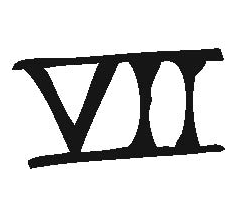One of the many arguments that circulate in today’s society is
whether it is genuinely more violent, (than, say, 40 or 50 years ago), or whether
that is simply our perception. With the advent of violent video games and ever
more violent films, wider gun ownership, gang culture, terrorism and
historical paedophile cases coming to the fore from sections we should have been
able to trust, (children’s entertainers, the Church), we would be forgiven for
falling into the camp who throw their arms up in horror and retreat behind their
security gates.
whether it is genuinely more violent, (than, say, 40 or 50 years ago), or whether
that is simply our perception. With the advent of violent video games and ever
more violent films, wider gun ownership, gang culture, terrorism and
historical paedophile cases coming to the fore from sections we should have been
able to trust, (children’s entertainers, the Church), we would be forgiven for
falling into the camp who throw their arms up in horror and retreat behind their
security gates.
The counter-argument, of course, is that society has always been
violent, and that these things we now “feel” (in a way we never used to feel)
are simply a result of better reporting, better crime investigation, and a more
rigorous approach to uncovering the truth and insisting on
transparency.
violent, and that these things we now “feel” (in a way we never used to feel)
are simply a result of better reporting, better crime investigation, and a more
rigorous approach to uncovering the truth and insisting on
transparency.
The final overlay, and the driving force that many consider to be
the root cause of the change in our culture, is drugs and their availability,
(and diversity). Regardless of the credit crunch problems in the US &
Europe, (which does not help the sense of foundations crumbling), there is
enough already to make us rush to arms.
the root cause of the change in our culture, is drugs and their availability,
(and diversity). Regardless of the credit crunch problems in the US &
Europe, (which does not help the sense of foundations crumbling), there is
enough already to make us rush to arms.
I think this has been a gradual process, and I wonder how much of
it has to do with the rapid increase and development of the internet and mobile
technology over the last 20 years or so. We are living through something more
potent than the last industrial revolution. Consider the 3D printing of tangible
parts that will effectively wipe out current manufacturing in years to
come.
it has to do with the rapid increase and development of the internet and mobile
technology over the last 20 years or so. We are living through something more
potent than the last industrial revolution. Consider the 3D printing of tangible
parts that will effectively wipe out current manufacturing in years to
come.
So I am both pleased, (and yet saddened), to find evidence this
week that books, and the language used within books, is still considered a
barometer of cultural shifts. The New Scientist carries an article (link below)
that shows the trend in language use over the last 30 years based on 5 Million
books digitised by Google. In simple terms it confirms that the language has
become less emotive (as in sensual) and more fear-based. Does the increase in
the use of fear-related words indicate a cultural societal shift to a more
fearful world community? Is it just writers having to stab an ever-increasingly
de-sensitized readership deeper for a reaction?
week that books, and the language used within books, is still considered a
barometer of cultural shifts. The New Scientist carries an article (link below)
that shows the trend in language use over the last 30 years based on 5 Million
books digitised by Google. In simple terms it confirms that the language has
become less emotive (as in sensual) and more fear-based. Does the increase in
the use of fear-related words indicate a cultural societal shift to a more
fearful world community? Is it just writers having to stab an ever-increasingly
de-sensitized readership deeper for a reaction?
Click here to see the full New Scientist article:

 RSS Feed
RSS Feed
